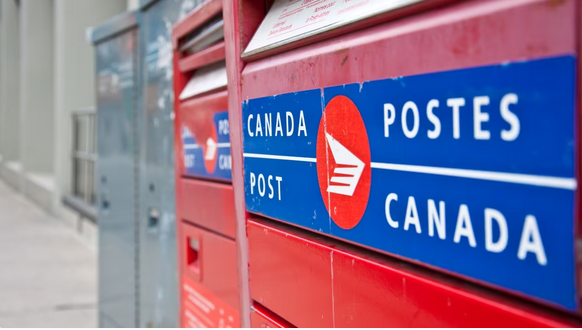Declines in Canadian citizenship may have potential consequences on civil engagement and electoral participation
Daniel Aguilar has been waiting almost a decade to become a Canadian citizen.
He’s now wishing he had waited one more day before applying.
Aguilar submitted his application in July, and passed the citizenship exam in January.
An immigration officer verified his documents in a follow-up interview, and he was told everything was fine and to wait for a date for his oath-taking ceremony.
That date, however, never came.
His application was not accepted for the most unusual and, to Aguilar, frustrating reason.
The Colombian man was told in a recent email from Immigration that there was an error in documenting the number of days he spent in Canada to qualify for his citizenship.
According to officials, he missed the required 1,095 days — by one day.
Now, he was told, he must withdraw his application and reapply.
“It’s more than seven months since I submitted my application and nobody took the time to review the physical presence (requirement) in order to allow the application to keep moving forward,” said Aguilar.
Along with his wife and four children, he has lived in London, Ont., since he came to Canada in 2014 via the United States.
“Why did they wait until this time to tell me I didn’t meet the criteria, just before I was ready for my ceremony?” said Aguilar, who says he feels he’s still a foreigner in the country. “That should have been done at the beginning of their process of the application, not at the end.”
The snafu and further delay to Aguilar’s citizenship followed a recent report that found the proportion of eligible permanent residents acquiring citizenship has dropped significantly, especially during the last census period.
According to the Statistics Canada study, the percentages of permanent residents who acquired Canadian citizenship after they met the residency requirement has decreased from 75 per cent in 1996 to just 46 per cent in 2021. Between the two most recent national surveys (2016 and 2021), the citizenship naturalization rate fell by 14.7 per cent.
The worrisome trend has prompted concerns over the value of Canadian citizenship and the potential consequences the decline may have on civil engagement, community involvement and electoral participation, as well as allegiance to the country.
This is also happening while the Immigration Department is still tackling ongoing backlogs in all of its programs, built up as a result of the operational disruptions caused by the office lockdown and travel restrictions during the pandemic.
Despite efforts to hire more staff and digitize application processing, the overall number of permanent and temporary residence as well as citizenship applications in the system has grown from 2,017,700 to 2,188,400 in the past year. Files that have exceeded the standard processing times have also grown from 896,300 to 930,000; as of January, 19 per cent of the 267,400 citizenship applications are considered backlogged.
Aguilar said requiring him to submit a new citizenship application for missing a day of physical presence doesn’t make sense when the Immigration Department has bigger problems to worry about, especially given that with the time he’s spent in Canada during the processing of his application, he would have surpassed the requirement regardless.
“According to Immigration, I need to go through the whole process again and they are going to be processing my application from scratch, just for the one missing day,” said the 45-year-old man, who works three jobs as a security guard, transit driver and landscaper.
“They are creating extra work for themselves. They are creating the backlog for themselves.”
Immigration officials said there are no waivers for adult applicants for this particular requirement and citizenship cannot be granted if the required days are not met.
“If the applicant miscalculated absences and submitted the application without having the required number of days, the application will be refused,” said a department spokesperson, who didn’t explain why the physical presence assessment only takes place at the end of the application process. He did say Aguilar’s file is still “in progress.”
The journey to citizenship has been long for the former refugee who fled Colombian paramilitaries, arrived in late 2014, had an asylum hearing in 2016, won an appeal in 2019 to overturn the initial refusal and received his permanent resident paper in 2021 after being a protected person on temporary status for two years.
Despite his years in Canada, the law stipulated that only half of the days he spent as a protected person were counted toward his citizenship application. Since he had made four overseas trips, Aguilar said he waited until July 6, 2023, to apply for his citizenship, confident that the extra time would have made up for his days absent from Canada.
In an email to Aguilar on Feb. 15, the Immigration Department pointed out a discrepancy in a trip he made to Mexico in 2020 during the pandemic to treat severe back pain.
“Our findings show that your return date to Canada on this specific trip was 2020/09/14 02:13:58 AM Entry Pearson International Airport – Terminal 3 and not 2020/09/04,” said the letter, offering Aguilar the option to withdraw his application.
“With the adjustments that have been made, you currently have 1,094 days during the following eligibility period: 2018/07/09 to 2023/07/08. You are presently 1 day short of meeting the physical presence requirement.”
The irony, said Aguilar, was his flight from the trip actually arrived in Toronto at 10:30 p.m. on Sept. 13, 2020, as per his itinerary, even though he admitted he made a mistake by filling in a wrong date. However, due to delays caused by public health protocols, he said he had to wait in lines and did not get cleared at the customs until 2:30 a.m. the next day, based on immigration officials’ record.
“To Immigration, technically I arrived the next day even though I actually landed in the airport in Mississauga the day before,” he lamented.
Aguilar said he had twice emailed the immigration office in Kitchener that handled his application for advice in his attempt to remedy the situation without having to go through the entire process again, let alone pay another $630 application fee.
He said he had no choice but to withdraw his application earlier this month after not getting a response; he is still waiting for officials to authorize his withdrawal, which he was told would take six to eight weeks.
“I would love to have the right to vote, because that is the only way to participate in democracy in this country,” he said. “Having the citizenship will make me feel I belong to this country. As a permanent resident, even though you have all the other rights, you don’t feel like you’re a complete Canadian.”
This article was first reported by The Star













